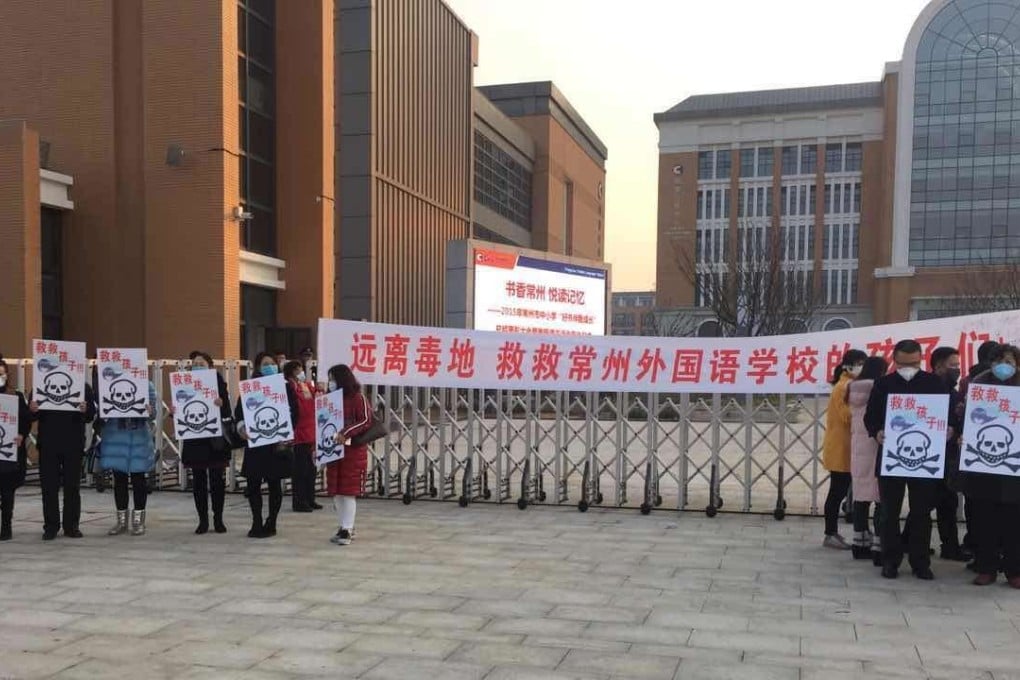Parents unconvinced as Chinese authorities pledge investigations into soil blamed for students’ health problems, including cancer

Parents of students suffering health problems blamed on polluted soil near a school in Jiangsu are sceptical of investigations by state environmental and education authorities.
Some do not even trust local hospitals to carry out health checks on their children, suspecting they may have been pressured by the city authorities.
Many are questioning whether to continue sending their children to the school, which charges 8,500 yuan (HK$10,170) per semester and is among the best in Changzhou.
The ministries of environmental protection and education ordered investigations into the problems at Changzhou Foreign Language School, prompted by an expose by state broadcaster CCTV.
The broadcaster said 493 pupils had developed health problems, including bronchitis, blood and thyroid abnormalities, and even lymphoma and leukaemia, after the school moved last September to a new campus adjacent to a site that had been contaminated by three chemical plants.
School in China orders probe over ‘toxic’ soil, water after pupils develop cancer and other health problems
The plants left in 2010 and when the school moved to the campus, a project to remedy the polluted soil was launched. However, the project was thought to have released some of the site’s toxins into the atmosphere.